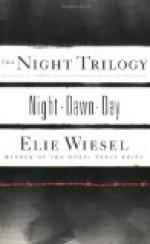So that the soul once more may stand erect,
Victor of self, no more to be enslaved,
And live in charity and gentle peace,
Bearing all meekly, loving those who hate;
And when at last the fated stream is reached,
With lightened boat to reach the other shore.
And here he found the light he long had sought,
Gilding at once Nirvana’s blissful heights
And lighting life’s sequestered, lowly vales—
A light whose inner life is perfect love,
A love whose outer form is living light,
Nirvana’s Sun, the Light of all the worlds,[4]
Heart of the universe, whose mighty pulse
Gives heaven, the worlds and even hell their life,
Maker and Father of all living things
Matreya’s[5] self, the Lover, Saviour, Guide,
The last, the greatest Buddha, who must rule
As Lord of all before the kalpa’s end.
The way of life—the noble eightfold
path,
The way of truth, the Dharma-pada—found,
With joy he bade his loving guides farewell,
With joy he turned from all those blissful
scenes.
And when the rosy dawn next tinged the
east,
And morning’s burst of song had
waked the day,
With staff and bowl he left the sacred
tree—
Where pilgrims, passing pathless mountain-heights,
And desert sands, and ocean’s stormy
waves,
From every nation, speaking every tongue,
Should come in after-times to breathe
their vows—
Beginning on that day his pilgrimage
Of five and forty years from place to
place,
Breaking the cruel chains of caste and
creed,
Teaching the law of love, the way of life.
[1]The later Buddhists make much of the doctrine of metempsychosis, but in the undoubted sayings and Sutras or sermons of Buddha I find no mention of it except in this way as the last hope of those who persist through life in evil, while the good after death reach the other shore, or Nirvana, where there is no more birth or death.
[2]This great and fundamental truth, lying as the basis of human action and responsibility, was recognized by Homer, who makes Jupiter say:
“Perverse mankind, whose wills created
free,
Charge all their woes to absolute decree.”
Odyssey, Book I, lines 41 and 42
[3]After examining the attempted explanations of that remarkable passage, the original of which is given at the end of the sixth book of Arnold’s “Light of Asia,” I am satisfied this is its true interpretation. It is not the death of the body, for he lived forty-five years afterwards, much less the annihilation of the soul, as some have imagined, but the conquest of the passions and gross and selfish desires which make human life a prison, the very object and end of the highest Christian teaching’s and aspirations.
[4] “Know then that heaven and earth’s
compacted frame,
And flowing waters, and the
starry flame,
And both the radiant lights,
one common soul
Inspires and feeds and animates
the whole.”
Dryden’s
Virgil, Book VI, line 360.




